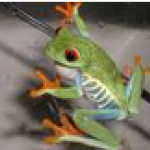vertebrate
Photo of a Greenland shark from Wikipedia.
A multi-national team of scientists sought to determine the age of Greenland sharks (Somniosus microcephalus). These animals grow rather slowly (about 1cm per year) and are the largest fish in the arctic (>500 cm long), but their longevity was not yet known. The team used radiocarbon dating of crystalline proteins found within the nuclei of the eye lens. Because these proteins are formed prenatally, they offer a rather accurate way to estimate an animal's age. Their findings, published in Science…
Color-coded diagram of a small bone bed containing at least twelve individuals of the Permian synapsid Suminia. From Frobisch and Reisz (2009)
When I hear the phrase "early human relative" I cannot help but think of an ape-like creature. Something like Sahelanthropus fits the bill nicely - it may not be a hominin but it is still a close relative from around the time that the first hominins evolved. That is why I was a bit puzzled to see MSNBC.com parroting a story written by the Discovery Channel which proclaimed "Early human relative predates even dinosaurs"! Was this another fossil that…
Old man Dave writes to me about his back problems:
The spine. I want to know about the spine. I know you are not that kind of PHD but still……. I’ve had back problems most of my adult life. It seems to me if we were “intelligently” designed that we might have a more efficient, and less troubling, method of uprightedness…. given the way the spine is constucted isn’t it possible that we were not “made” to walk upright??
Well, the spine goes back a long time, Dave, long before you were busting yours trying to lift things with your back instead of your legs. (You know better, Dave!) There are…
